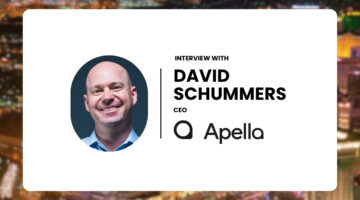
Quis custodiet ipsos custodes?” Or, in case your high school language of choice wasn’t Latin: “Who watches the watchmen?” This ancient question has haunted philosophers and poets for centuries, forcing us to confront this paradox of responsibility. Those tasked with protecting others rarely take the time to protect themselves.
In healthcare, this paradox is painfully real. Every day, we rely on the care of physicians, nurses and other health care professionals to properly diagnose and treat complex health issues and alleviate suffering. They operate under tremendous pressure, often making split-second decisions that carry enormous consequences for their patients.
Even with their exceptional knowledge and training, healthcare professionals are prone to the same mental health risks as those of other workers, such as on-the-job burnout, depression, anxiety, substance use and relationship pressures. Yet they experience them in an environment where the stakes are uniquely high.

Solera Health’s Playbook To Beat Rising Employer Expenses
Solera Health is working to streamline employer contracting with health tech.
The scope of the problem
A recent Stanford University study of several thousand U.S. physicians in 2023-2024 found that 45.2% reported at least one symptom of burnout, including emotional exhaustion, a detached or negative attitude toward patients and lower productivity.
The problem is compounded by a growing shortage of physicians — especially in primary care — and an aging population that demands more healthcare services. The physician shortage is projected to reach as high as 124,000 doctors by 2034, according to the Association of American Medical Colleges.
The business risk for healthcare institutions

Transforming the OR: CEO Reveals Game-Changing AI Tech for Better Efficiency
How Apella leverages technology to increase OR efficiency.
Burnout and other mental health issues among healthcare professionals are more than a personal hardship. They present a huge business risk. When clinicians falter, the ripple effects extend far beyond their own well-being. The quality of patient care suffers, errors become more likely, and team dynamics begin to erode.
Organizations with high burnout rates also face greater turnover, higher liability exposure, and reputational harm that is harder to calculate. The financial cost of replacing a single physician — including recruitment, onboarding, and lost productivity — can reach up to $250,000, according to Practice Match. Across departments and organizations, these costs quickly multiply.
Leaders who fail to address this risk endanger the stability of the healthcare system and erode the trust of the communities they serve.
Why traditional access models fall short
Most organizations provide Employee Assistance Programs (EAPs), and many promote access to mental health services through insurance networks. Yet these well-intentioned efforts often fall short.
EAPs are frequently underutilized, in part because of fear of stigma since they are offered by the physician’s employer, or they are perceived as inadequate. Insurance-based care brings its own obstacles — narrow provider networks, long wait times, and limited access to professionals who may truly understand the unique pressures of medical practice.
For many clinicians, seeking support may feel risky. Admitting vulnerability raises fears about career repercussions, licensing restrictions, or loss of credibility among peers. In a culture that prizes resilience, acknowledging the need for help can feel like a liability. Many clinicians also refrain from seeking mental health care through insurance because of fears around discovery. A documented diagnosis can sometimes complicate their ability to obtain or renew malpractice insurance or life insurance, which further discourages them from accessing support.
All this creates a wide gap between what organizations offer on paper and what their employees actually feel safe using.
Emerging approaches: discreet, concierge-style support
In recent years, new approaches have begun to emerge that attempt to close that gap. Concierge-style mental health services designed specifically for clinicians offer confidential, on-demand access that fits into unpredictable schedules. These programs emphasize privacy and understanding, acknowledging the chronic exposure to stress that defines medical work.
Just as important, they prioritize timeliness. Timely care is critical because delays often worsen outcomes. Immediate access to discreet, professional support can help keep a manageable situation from becoming a crisis. For healthcare organizations, this difference is not only compassionate — it is strategic. Every instance where timely care prevents a clinician from leaving the workforce represents profound savings in cost, morale, and continuity of patient care.
Early adopters of these timely, discreet models have reported encouraging results: higher engagement, better retention, and stronger cultures of empathy. For clinicians, the ability to seek confidential help quickly is often the difference between managing stress effectively and spiraling into crisis. For patients, it translates into a healthcare system staffed by professionals who are healthier, more focused, and more present.
The message is clear: investing in clinician mental health is a strategic imperative. Organizations that continue to rely on traditional solutions risk financial losses, diminished patient outcomes, and long-term reputational harm. Those that move decisively to offer timely, trusted, and accessible support systems will not only protect their workforce, but also safeguard the quality of care that patients and communities depend on.
The moral case is even stronger. We owe it to those who dedicate their lives to caring for others to ensure that they, too, have access to help when they need it most.
So, the question “who watches the watchmen?” is no longer philosophical. It is practical and urgent. Healthcare’s future depends on it.
Photo: Halfpoint Images
Dr. Namit Choksi is a physician, entrepreneur, and healthcare executive dedicated to transforming how mental health care is delivered to those who care for others. As Chief Executive Officer of Tend Health, he draws on his clinical training and leadership experience to establish a new standard in behavioral health.
Dr. Choksi earned his MD in India, a Master of Public Health from Harvard University, and an MBA from the MIT Sloan School of Management. He is also a Schwarzman Scholar at Tsinghua University. His career spans advising Fortune 500 companies and health-tech startups, investing in transformative ventures, and contributing to national health initiatives across Asia, the United States, and the Middle East. Guided by a clear vision, Dr. Choksi is working to build discreet, high-quality mental health infrastructure designed to understand, support, and sustain those on the front lines of medicine.
This post appears through the MedCity Influencers program. Anyone can publish their perspective on business and innovation in healthcare on MedCity News through MedCity Influencers. Click here to find out how.







